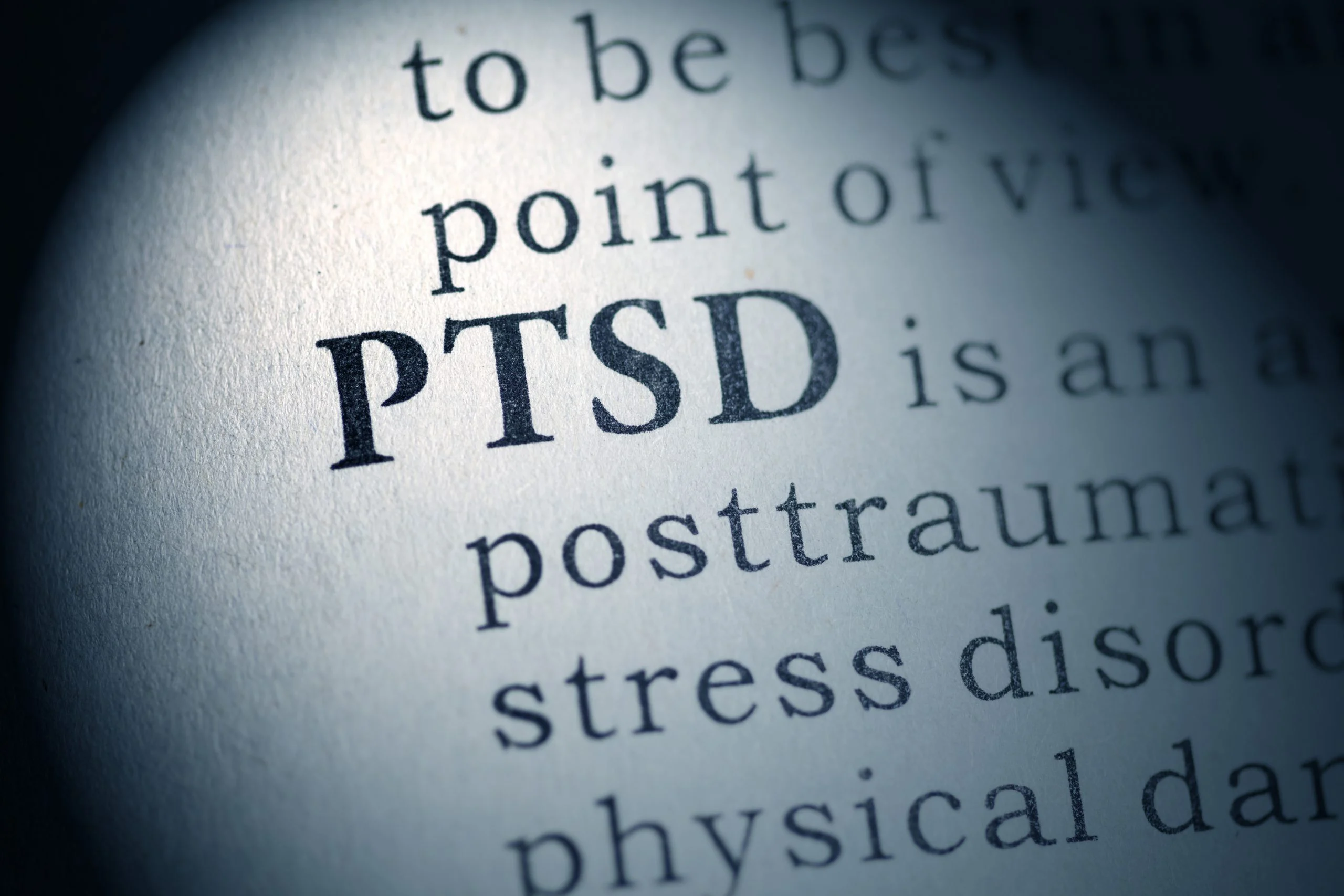Post-Traumatic Stress Disorder, or PTSD, is stressful, terrifying, and uncomfortable for everyone involved. While this disorder is extremely difficult for the individual experiencing it, it can also make their loved ones feel helpless and heartbroken as they struggle to understand this condition. If you are interested in learning more on how to support someone with PTSD, then continue reading.
PTSD affects around 4% of men and 5% of women in the UK alone. This means not only are a portion of our society suffering, their loved ones may be suffering, too.
This by no means is meant to take away the pain and anguish those with PTSD feel on a daily basis, but rather to shed light on a lesser known issue in regard to Post-Traumatic Stress Disorder.
What Exactly Is Post-Traumatic Stress Disorder?
PTSD is a mental health condition caused by a traumatic, terrifying, or shocking event. This disorder is the aftermath of experiencing or witnessing something horrific. Not only is PTSD caused by a heinous event, but it can also stem from any situation in which your loved one felt like their normal coping mechanisms were overwhelmed beyond the point of function.
It is important to remember, it is not the event from which PTSD can arise but rather your loved one’s perception of the event. Each person has a tolerance for how much stress their body and mind can handle.
Trauma is subjective, meaning although it may not seem traumatic to you, it can cause lasting and devastating effects on another person.
PTSD can be rooted in either short or long-term trauma.
Examples of short-term events that can cause PTSD include witnessing or experiencing:
- War
- A car accident
- Injury
- Violence
- Rape
- Assault: physical or sexual
- Abuse
- Natural disasters: tornadoes, hurricanes, floods…
- Losing a family member
- Childbirth
Examples of long-term events that can cause PTSD include witnessing or experiencing:
- Childhood abuse or neglect
- Domestic abuse
- Community violence
- A stressful or chaotic home
- Drug or alcohol abuse
- A chronic medical condition

How Does My Loved One Experience PTSD?
If the person close to you isn’t keen on opening up about their struggles you may not even know exactly how much they are truly suffering.
PTSD can cause a variety of both mental and physical symptoms that can cause a ripple effect and seep into their everyday life. In some cases, PTSD doesn’t appear right away. It may take months to develop, lying dormant right under the surface.
Typically, symptoms of PTSD can be grouped into four categories: intrusive memories, avoidance behaviours, negative changes in mood or thoughts, and a distinct change in both physical and emotional reactions.
Your loved one may be experiencing any of these symptoms:
- Intrusive Memories:
- Nightmares
- Night terrors
- Flashbacks
- Recurring memories of the event
- Stressful memories when faced with a trigger of the event
- Avoidance Behaviours:
- Avoiding thinking or talking about the event
- Avoiding people, places, or things that bring back memories of the event
- Avoiding social gatherings
- Avoiding activities, they once loved to do
- Negative Changes in Mood or Thoughts:
- Negative thinking about the world around them
- Irritability
- Anger
- Depression
- Negative thoughts about others
- Suspicious thoughts about another person’s motives
- Hopelessness when talking about the future
- Memory loss (especially in regard to the event)
- Difficulty connecting with others and making friendships
- Feeling isolated from others
- Difficulty feeling any positive emotion
- Feeling an overall sense of numbness
- Changes In Emotional and Physical Reactions:
- Paranoia
- Appearing ‘jumpy’ or easily startled
- Being easily frightened
- Always ‘looking over their shoulder’
- Trouble sleeping at night
- Trouble concentrating
- Extreme guilt and shame (survivors’ guilt)
Trauma can change your loved one’s identity. Experiencing or witnessing a traumatic event can change their brains in ways scientists are still trying to understand.
Four Tips to Help You Support Your Loved One With PTSD
Whilst it is normal to hope that life can go back to the way it once was, this isn’t often the case (at least not immediately). So, what can you do? How can you help support your loved one with PTSD?
Educate Yourself
The first step in helping a loved one with any mental health disorder is to educate yourself as much as possible.
Knowledge is Power
The more knowledgeable you become in PTSD, the easier it will be to understand and empathise with them. Take time to understand how trauma can change an individual, warning signs to look out for, and treatment options available for your loved one.
The more educated you become in PTSD, the more helpful and effective your support tactics will become.
Use Active Listening Techniques
Another way to support your loved one with PTSD is to listen, and I mean truly listen to them. Instead of trying to brush their experience away, use active listening skills to not only show you deeply care, but to affirm that you are here as a shoulder to lean on.
You can use active listening skills such as:
- Giving them your full attention
- Asking questions
- Making eye contact
- Nodding your head occasionally
- Acknowledging their experience
- Allowing them to be upset for what happened
- Not judging or dismissing their trauma
- Not assuming how they may feel now
- Not giving a second opinion on how they should feel
Never pressure someone to talk about their experience. This may trigger their PTSD and close them off from ever speaking to you about it again. Give them the freedom to speak at their own pace and disclose as little, or as much information about the event as they wish to. It’s good to ask questions but remind them they do not have to tell you anything they feel uncomfortable with.
Be Patient with Them
Trauma is complex. It is by no means a ‘black or white’ condition.
Healing from a traumatic event rarely ever follows a straight line. Healing is linear.
Some days they may seem completely fine, while others may feel like a mountain to overcome. Be patient with them. Remind them that what they are feeling will pass.
People with PTSD often operate on autopilot as their bodies can remain in self-preservation mode for some time after the event. They may not always be able to control how they behave, especially if they become triggered or experience a flashback. Stay patient among the tears, anger, and pain.
Learn Their Triggers
Managing triggers can be a huge part of PTSD. Many people with PTSD fear unwanted flashbacks or memories and take excessive steps to avoid certain people, places, or things. For example, many veterans that come home from war have a difficult time with fireworks.
Learn what triggers your loved one has and take note of which behaviours to be on the lookout for that may signal an intervention. Not only can this help you understand more about risky situations, but it can also help you be prepared for a flashback ahead of time.
If you do witness your loved one become triggered or experience a flashback, think about these tips:
- Do not make any sudden movements or noises
- Stay calm
- Remain gentle with them
- Remind them that they are not living in the past anymore
- Keep them grounded in the present moment
- Encourage them to breathe slowly and deeply
Final Thoughts
PTSD can be incredibly frightening for the individual who is not living with the condition. It may feel as though your loved one is out of control, in denial, or is unable to move on. As a support system on the outside, it is important to remember that while the mind may forget details of the event, our bodies take much longer to process and dispel of the reactions we felt.
No matter what, your presence matters. Even in the heat of the moment when your loved one is experiencing a nightmare, or an emotional breakdown, keep in mind that simply being there can mean the world.
PTSD can feel incredibly isolating to someone suffering from it, but above all, remind them that you are a safe place to turn to, lean on, and find peace. Continue to be there, no matter what.
Orchestrate Health offers bespoke mental health services that people can access from the comfort of their own home or within their community, with rapid response times and even daily visits if needed. Orchestrate Health can provide help for those struggling with PTSD, and remove the inconvenience of travelling to and from appointments.
Resources:













